I’m beginning this Arts review with my reading journey that included three of the novels short-listed for the 2021 International Booker Prize – two translated into English from French and one from Spanish. Subsequently, I read another seven novels from around the world: three from America, one from the UK, one from Egypt, one from Barbados and one from across Central America and Europe. If I can’t travel there at the moment, I can at least read about them.
Books
International Booker Prize Shortlist
I didn’t read the whole of the shortlist, but I managed three from it….
At Night All Blood is Black by David Diop (translated from the French by Anna Moschovakis). This is a short but deeply moving novel set in the trenches of Europe during World War I. Involving a Senegalese soldier who avenges the death of his friend through horrific means, it skilfully blends black magic and bullets in its depiction of one man’s descent into madness. Of the three short-listed novels I read, this one engaged me the most and I was pleased that it was declared the winner.
When We Cease to Understand the World by Benjamin Labatut (translated from the Spanish by Adrian Nathan West). Although this novel did not engage me as much as the Diop novel, it always interested me. Through fiction, it cleverly depicts the inter-connected lives, thinking and theories of a group of real twentieth-century scientists and mathematicians (including Einstein, Bohr, Schrodinger and Heisenberg) and their diverse impacts on the world. My partner – who is right into his science – loved this book and didn’t want it to end. I, on the other hand, just made it to the end.
The War of the Poor by Eric Vuillard (translated from the French by Mark Polizzotti). Set within the sixteenth century Protestant Reformation in Europe, this very short novel tells the real-life story of theologian Thomas Muntzer and his urging of peasants to rise up against their political and religious masters. I learnt a lot about the events and the time period, but the straight-forward story-telling did not engage me in Muntzer’s life. It did not move me.
Other Novels
Great Circle by Maggie Shipstead. This is a superb epic novel and one that I am recommending strongly to my friends. It links the hugely adventurous life of a female aviator in the first half of the twentieth century with the highly emotional life of an actress playing the aviator in a contemporary Hollywood movie. Set across the world (including New Zealand), it swept me along with its strong sense of character and its very rich language.
The Great Mistake by Jonathan Lee. This is another epic American novel which swept me along. It begins with the murder of real-life Andrew Haswell Green (referred to as ‘the father of greater New York’) in 1903 and examines his life, revealing him as not only highly successful and self-made, but also as lonely and full of unfulfilled longing. Like the parts of New York that Green was responsible for establishing (Central Park, NY Public Library, Metropolitan Museum of Art), it is elegant in structure and story-telling.
Jack by Marilynne Robinson. This novel (part of a trilogy) is a love story set in St Louis Missouri just after WWII. It is complicated by the fact that the love is between a ne’er-do-well white man and an African-American high school teacher. Others have loved this novel, but its poetic depiction of the love affair created a barrier for me. Right from its long opening section set overnight in a city cemetery, this novel did not touch me as much as it has touched others.
Klara and the Sun by Kazuo Ishiguro. This beautifully written novel basically asks the question: what does it mean to love? Set in a futuristic world of extreme artificial intelligence, it focusses more on matters of the heart than it does on its robotic context. Will Klara the Artificial Friend be able to substitute for the love that a mother feels for her dying daughter? I enjoyed this novel very much as it challenged my thinking about ‘the future’.
The Republic of False Truths by Alaa Al Aswany (translated from the Arabic by S.R. Fellowes). This is another book that I love and am recommending strongly to my friends. Al Aswany is a favourite writer of mine who takes big casts of characters – always of Egyptian descent – and places them in chaotic contexts, bringing these contexts vividly to life with equal amounts of drama, passion and humour. The context for this hugely engaging novel is Cairo following the 2011 Egyptian Revolution where the idealism and vision of youth meets the oppression of the military.
How the One-Armed Sister Sweeps the House by Cherie Jones. Set in both the up-market/touristy and slum areas of Barbados, this dramatic novel is basically about what some women have to do to survive. Hard-hitting in its depiction of the two main characters experiencing dreadful instances of loss through extreme violence, I got totally caught up in these womens’ very sad lives.
Civilisations by Laurent Binet (translated from the French by Sam Taylor). Having struggled with Binet’s last book (The Seventh Function of Language) I just about didn’t read this book. I was pleased I did. It is a re-writing of history (Erik the Red’s daughter reaching Panama; Columbus not discovering America; the Incas invading and conquering much of Europe) and a re-imagining of what the world might have been. Each story is vividly told and strong links are made with contemporary issues such as empire-building and colonisation.
MOVIES
My movie going in this period has been confined to four films in the recently-held French Film Festival and two films in the recently-held Italian Film Festival. I enjoyed all six movies and would strongly recommend almost all of them if the festivals have not yet reached your town or if they are to return to a cinema post-festival.
From the French Film Festival:
Bye Bye Morons. This fast-paced tragi-comedy moved me immensely but also had me in stitches. As a tale of a middle-aged woman trying to ‘make something’ of her last days on earth, it sounds depressing. But it is anything but depressing as she indeed does make something of her last days, accompanied by a bizarre group of characters. This film won seven French Academy Awards (including Best Picture) and I can see why. Note that this film has already returned to cinemas post-festival.
De Gaulle. This beautifully mounted film focusses principally on one period of De Gaulle’s life – the period when Hitler’s troops seize Paris in 1940 and De Gaulle opposes much of the French Government by leading resistance against the Germans, albeit from abroad. This film moved me greatly – especially in relation to De Gaulle’s relationship with his wife and family – but also filled in many knowledge points that I did not hold.
Eiffel. This straight-forward but epic telling of the engineer who designed and built the Eiffel Tower, against much opposition and many challenges, also filled in many knowledge points I did not hold. I admired this film and enjoyed it, but possibly was looking for greater depth in its depiction of an important man’s life. I wanted more of his inner life rather than just his outer life.
Delicious. I loved this film of ambition and revenge. Set just prior to the French Revolution in 1789, it not only tells the story of the creation of France’s very first restaurant, but it also suggests why the workers and peasants revolted against the aristocracy and overthrew them. Beautiful to look at – it reminded me of Chocolat – this film must come back post-festival.
In addition, we watched a restored version of Jean-Luc Goddard’s 1960 class Breathless (part of the festival programme) at home. Featuring Jean-Paul Belmondo (as a gangster) and Jean Seberg (as a naïve American journalist) I wanted to see what the ‘new wave’ was all about. Goddard tells his love story in a way that is anything but breathless, but in a way that is sensual and cool. Long lingering shots – captured by a hand-held camera – intrigued me. Now on to his other masterpiece from the 1960’s – Pierrot Le Fou, also with Jean-Paul Belmondo.
From the Italian Film Festival:
The Goddess of Fortune. I loved this warm, gentle film (set in Rome and Palermo) and found it very moving. About to have major medical tests, a solo mum must find a temporary home for her two children and gives that responsibility to her best friend and his same-sex partner. As the emotions of all characters ebb and flow, so do the relationships between all of them. At the end of this film, I just wanted to watch it all over again.
The Traitor. This film is very me and I was engaged in its epic story-telling (set between Italy and Brazil in the early 1980’s) all the way through. It depicts the real-life story of the first time a leading Mafioso character testified against his clan and consequently brought the clan to its knees. Much of it is set in the courtroom and it had me on the edge of my seat, despite knowing the outcome.
At home, we also watched restored versions of two Italian classics from the 1960’s that were featured in the programme – The Leopard (a family epic set around the unification of Italy in the mid nineteenth-century) and Marriage Italian Style (with Sophia Loren as a ‘whore with a heart of gold’ determined to get her man played by Marcello Mastroianni – one of 17 films they made together). Both films are well worth watching.
THEATRE
I have been to just two plays in the past three months, both in Auckland. One I loved; the other really disappointed me.
I loved Wonderful by Dean Parker, directed by Conrad Newport and starring Andrew Laing. This production has been around for several years and I finally caught up with it. I’m so pleased I did. Laing plays a Jesuit priest who spends the performance ‘entertaining’ his class of male secondary students placed firmly in Napier – telling them stories that appear to have little to do with the curriculum and bursting into song from his favourite Rodgers and Hammerstein musicals. But a sadness lies beneath this character and Laing’s portrayal of it moved me immensely.
I wanted to love Everything After, written and directed by Shane Bosher, because I loved his recent production of Things I Know To Be True so much. But I didn’t. My feeling is that it couldn’t make up its mind whether it is a drama about the politics of HIV/AIDS in New Zealand or whether it is the story of a middle-aged man’s ‘downfall’ from HIV/AIDS. Overall, there was not enough of either for me and I felt unsatisfied at the end. Finely acted by all, this play didn’t move me as I thought it would.
AT-HOME VIEWING
Besides the afore-mentioned French and Italian film classics, we have watched three very different series over the past three months and I could recommend all of them but for different reasons.
Mare of Eastown, starring Kate Winslet. Some of my friends found this who-dunnit set in the working suburbs of the American mid-west depressing, but I didn’t. Yes, it is not uplifting. But its honesty and tension enthralled me from the start, as did Winslet’s performance.
The Underground Railway. This series, based on the wonderful Colson Whitehead novel, is depressing. It has to be – it’s subject matter of cruelty against Afro-American slaves in the nineteenth-century cannot be anything but depressing. But I’m pleased I stayed with it to the end. It captured the poetry of the novel well from the beginning, and I continually admired its wonderful performances and beautiful cinematography. And I consider its final two episodes to be outstanding and hugely uplifting.
Lupin. We watched the two series of this French action series and it is lots of fun. Lupin is a ‘con-man’ who sets out to avenge his father’s death, and each of the 12 episodes is full of ‘can that be true?’ and ‘what’s going to happen next?’ moments. Well worth watching, especially in the depths of winter.
We are now mid-way through the English series Small Axe (written and directed by Steve McQueen; depicting the experiences of Caribbean and African immigrants in London from the 1960s to the present day). The first episode is set around the Notting Hill Riots in the 1960s and is outstanding, especially as those arrested defend themselves in the famous Old Bailey trial. We are also now midway through the Danish series The Killing. Although this series has been around for years, I’d never caught up with it. Four episodes in, and I’m already on the edge of my seat.
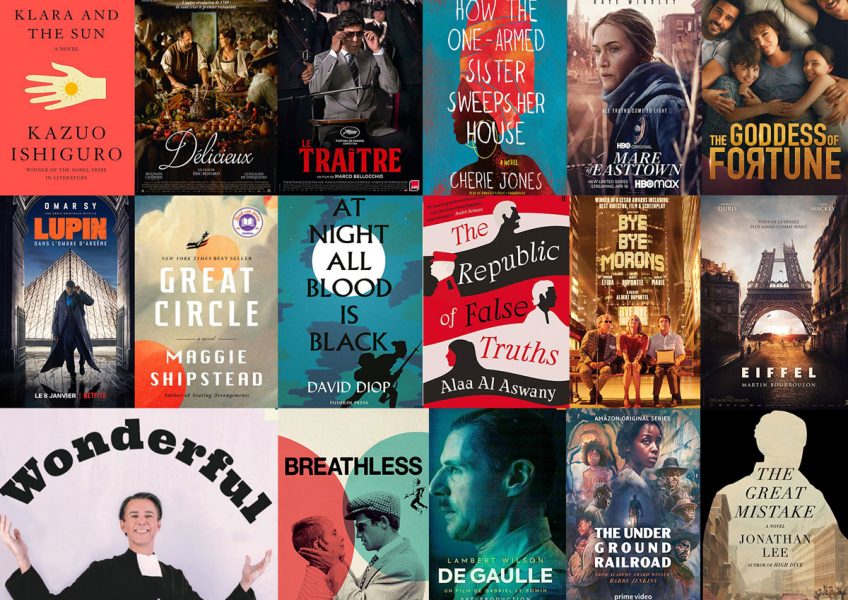
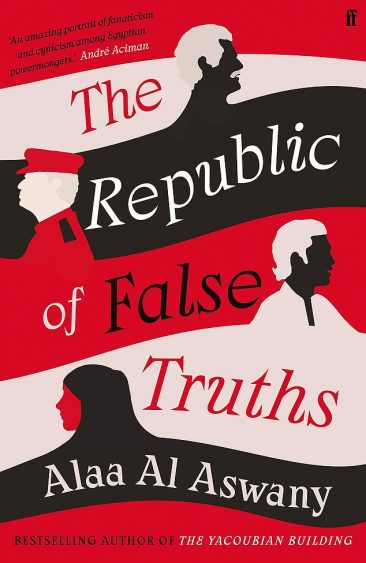
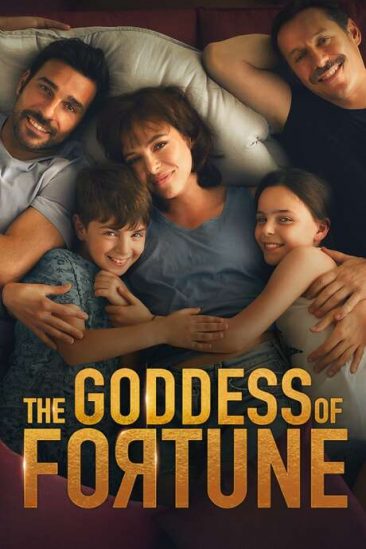
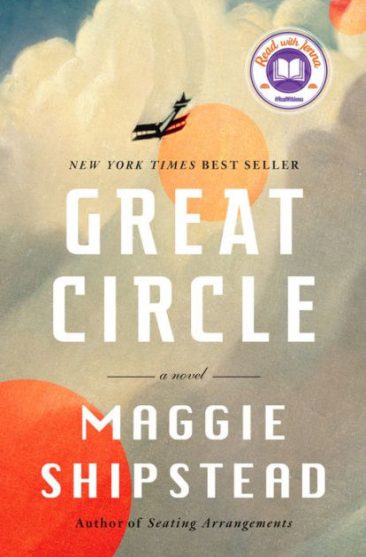
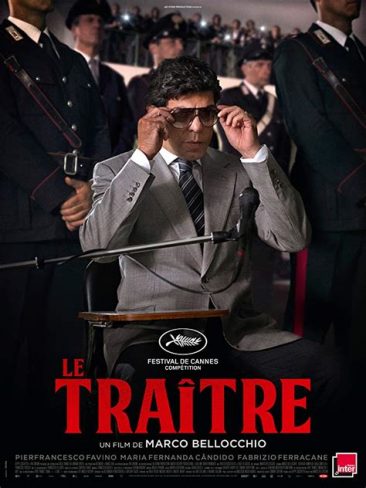
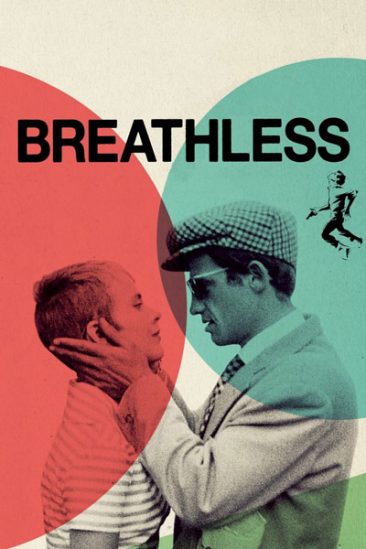
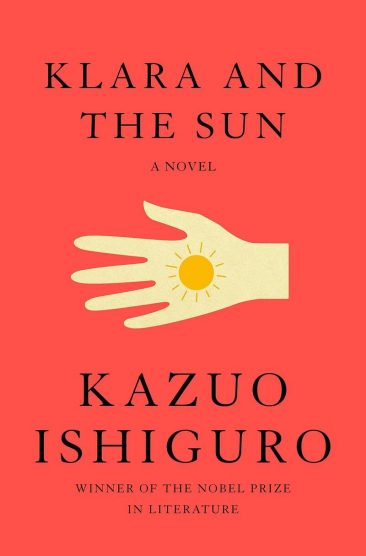
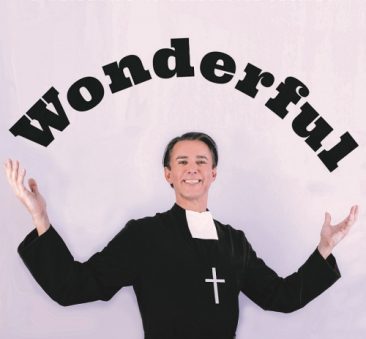
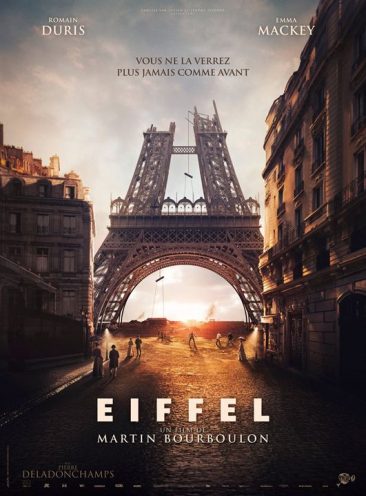
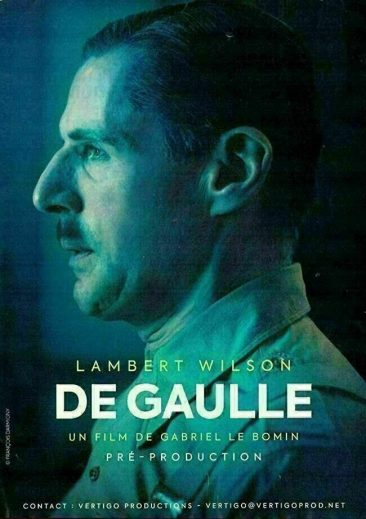
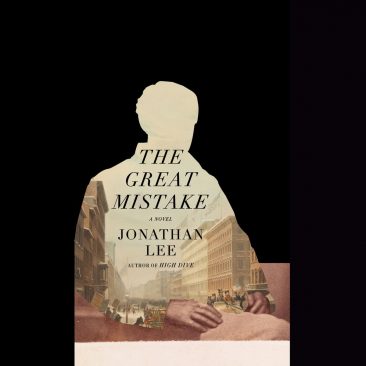
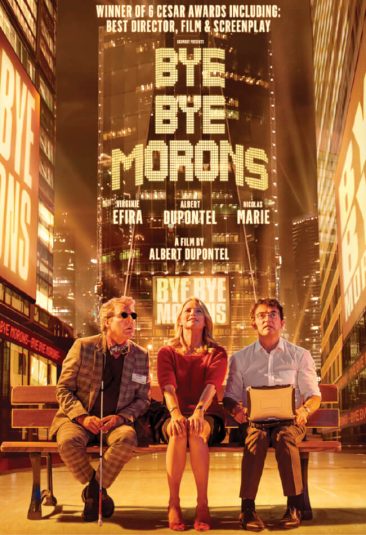
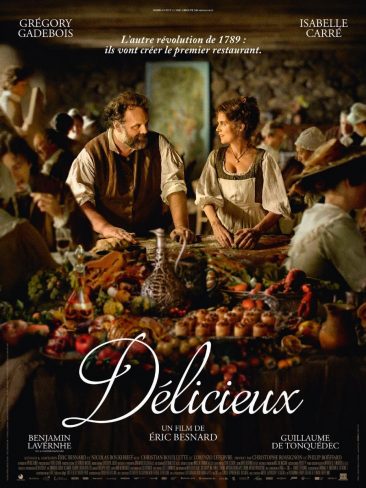
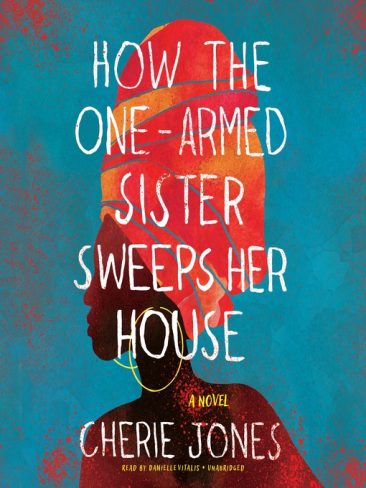
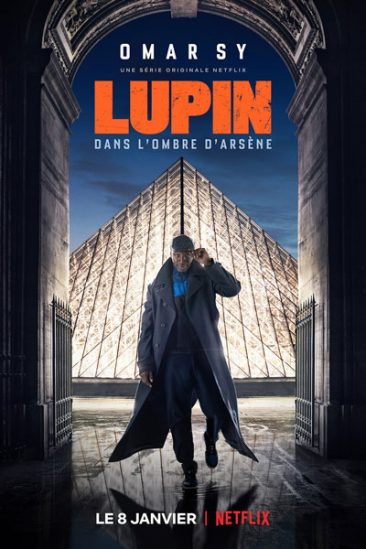
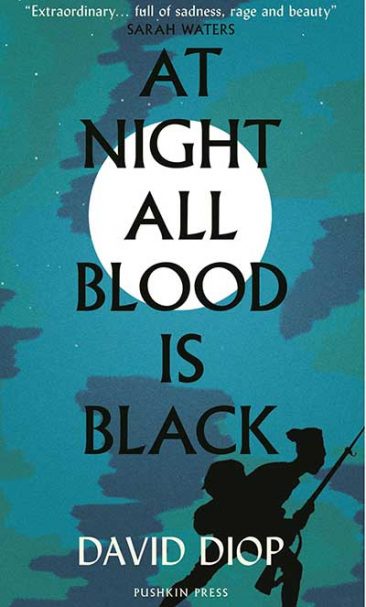
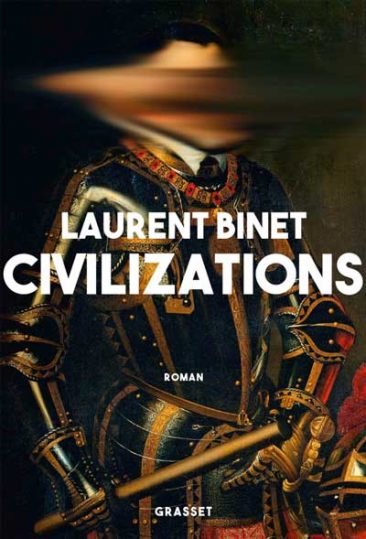
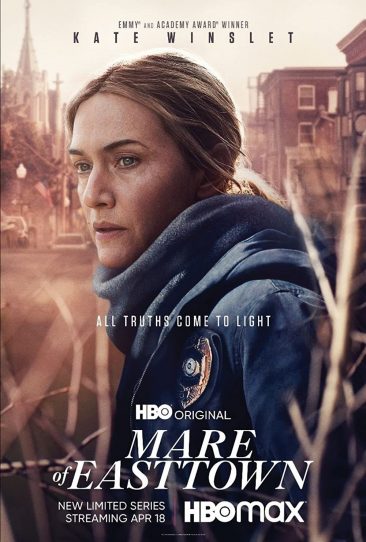
What do you think? Share your thoughts...